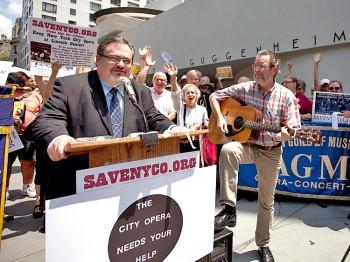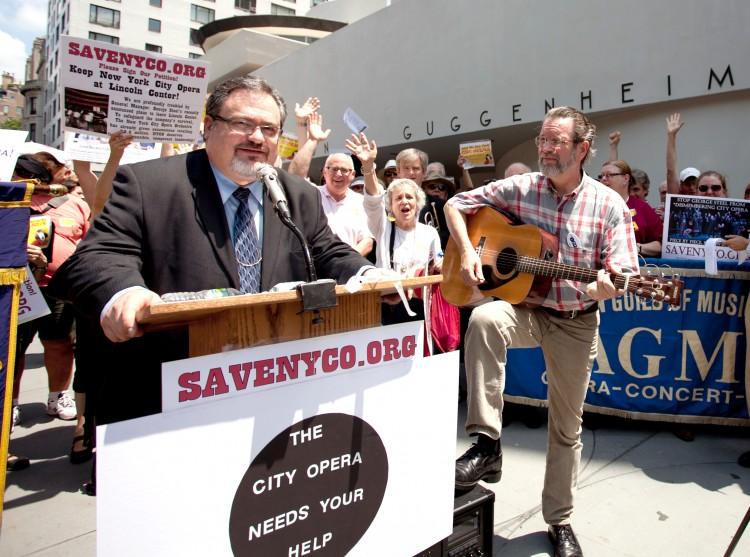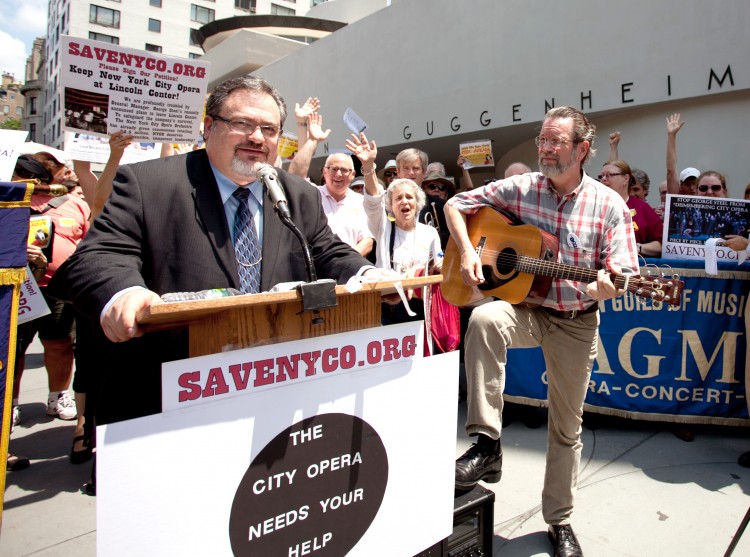New York City Opera Company Demands to Stay at Lincoln Center
New York City Opera Manager and Artistic Director George Steel announced the schedule and venues for the company’s 2011—2012 season at the Guggenheim Museum’s Peter B. Lewis Theater on Tuesday.

OPERA DRAMA: Tino Gagliardi, President of Local 802, Associated Musicians of Greater New York, speaks on behalf of New York City Opera musicians and staff at a rally outside the Guggenheim Museum on Tuesday. Amal Chen/The Epoch Times
|Updated:






